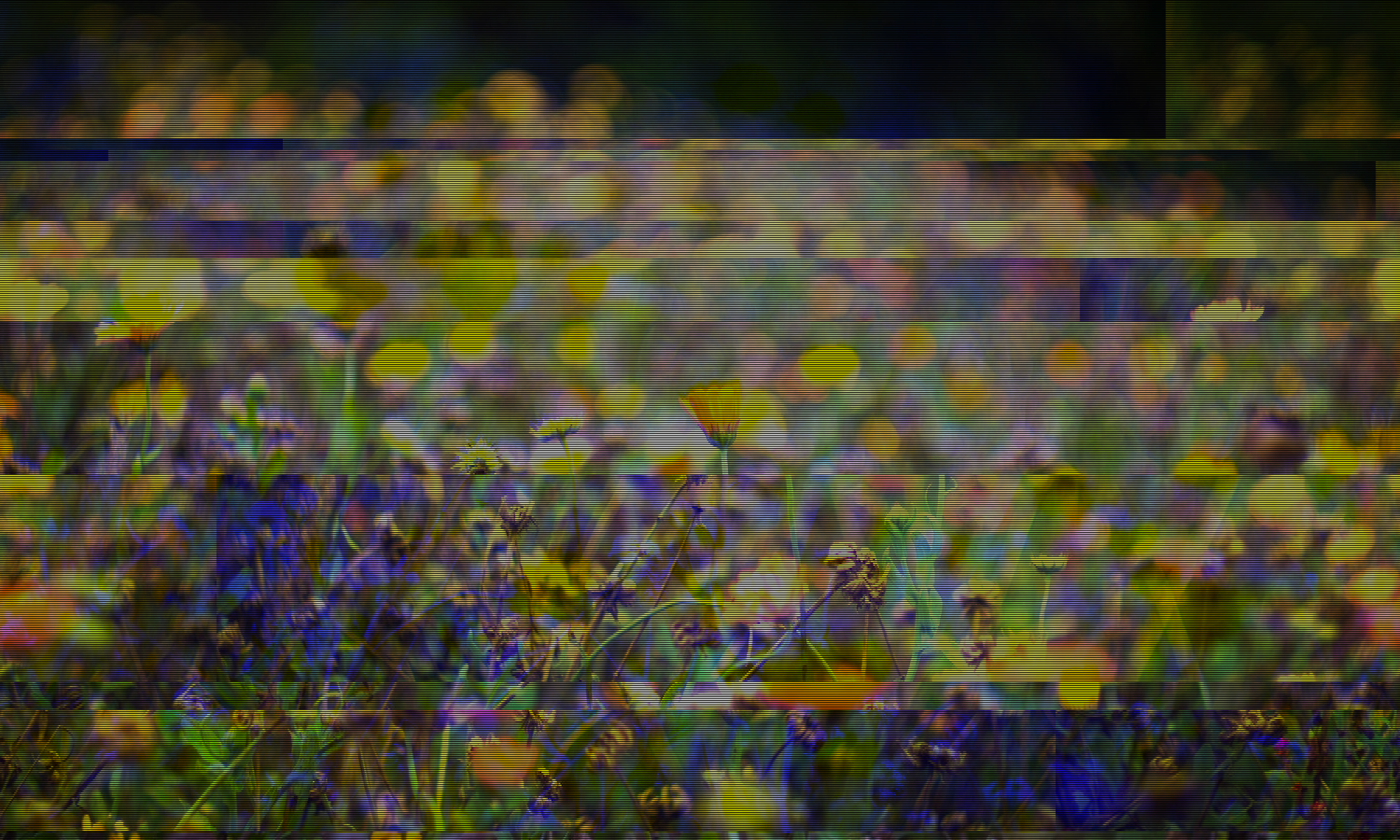Thursday June 28, 8pm
Artists’ Television Access
San Francisco
Screening followed by a performance from DROUGHT SPA.

Featuring:
vibrations / Camila Ausente
Vibrations is an exploration of the relationship between technology and nature, using light. This piece starts as a positioning before some biological engineering experiments, and aims to plant two questions: – What if technology allowed us to not dominate nor “enhance” nature and instead offered itself as a tool to make it visible? – If our relation of division (power) with nature is born from language, would not it be a way of subverting this by giving a space to everything that escapes from it, to the unspeakable?
Pink / Gili Avissar
In static frames seen from above, you can watch my body immersed in thick paint. In different stages of the endless cycles I attempt to fornicate “insects” of my own image, as though in a wild nature film. As the body undergoes some sort of Kafkaesque metamorphosis in attempts to transform it into art, I strives to unite with the wild and the unexpected.
Forest / Peter Barnard
A moving image work depicting a montage of forest environments created in CGI contrasted with found footage appropriated from the world wide web showing the the physical process of deforestation in various stages. The film presents a lyrical interweaving of 3D imagery created by collective memory intercut with videos showing actions that have a direct impact on the real world.
Orange Band / Sarah Bliss
A contemporary landscape that explores the posthuman and post-industrial, searching out new ways to engage the body on the land. By engaging the camera apparatus as a literal extension of my body, I bridge interior and exterior worlds, blurring the edge of what is “me” and what is “outside me.” Psychogeography made palpable.
Spinneret / Natasha Cantwell
Spinneret is part of a series of film works that lift the veneer of civilized humanity and social conventions, to reflect on the animal instincts we pretend we can control. In particular, this piece looks at displays of bravado and intimidation.
Mandres / Cassandra Celestin
Traces of a body draw a camera across a landscape of stone and walls.
behavior /in the/ vector / DROUGHT SPA (alex cruse & Kevin CK Lo)
The number of neurons within a typical honey bee or ant colony is within the same order of magnitude as neurons within the typical human brain.
Anthropological noise pollution disturbs electromagnetic fields.
Physicists suggest that virtual photons–the constituent units of an EMF–are the essential carrier units of consciousness.
Mycelium has been called the ‘earth’s natural internet.’
DROUGHT SPA’s ‘behavior /in the/ vector’ looks at these claims around the communications, structures, chemicals, sounds, and complex interactions between self-organizing, intelligent units.
Decomposition #1 / Adrianne Finelli & Bryan Boyce
A decomposing homage to fungi, the king of kingdoms, fueled by trash, pollution, death and disaster.
The multi-sensory Impossibility of a Worm / Jean Sadao
The work is composed in the first part by 9 images projected simultaneously in one of the 9 frames in which is divided the screen. The work seems to raise some questions about communication, the role of the senses and their possible effects: What would happen or how would develop or not the individual and the society if we can communicate differently or if we use other senses opposite to those already codified and adopted? In this perspective, the artist tries to call into question the conventional system of communication which stands at the base of our social structure and consequently affects the world around us. Therefore, the title ironically emphasizes the restricted use of other forms of alternative contact by man.
AST*RISK / Kotaro Tanaka
We live under various regulations.
Procedures to defend rights of another occur strange phenomena.
The more we hide something, the more we want to see it.
Another meaning occurs by hiding something but it doesn’t occur from something hidden, it occurs from the activity to hide something.
sloping suburbia / Jenna Anne Turner
“Paranoia about nature, of course, distracts from the obvious fact that Los Angeles has deliberately put itself in harm’s way” (Ecology of Fear: Los Angeles And The Imagination Of Disaster by Mike Davis, 2014)
Floods, fire, fast food. As this stop-motion suburbia encroaches upon nature, disaster strikes again and again.
As we face the consequences of global climate change and overpopulation, the catastrophic effects of natural disasters upon the human environment have become an almost constant reality. Suburban communities are often the most vulnerable to disaster, installing a tight density of rapidly-built, flammable homes and businesses which sprawl towards floodplains, hurricane paths and fire-prone areas. This stop-motion animation is a moving collage, a time-lapse of suburbia as it is continually affected by “acts of God” and then rebuilt.
Animal Cinema / Emilio Vavarella
Animal Cinema is a film composed of fragments of videos of animals operating cameras. All cameras were stolen by animals who acted autonomously. These video materials, downloaded from YouTube between 2012 and 2017, have been reorganized in Animal Cinema as a constant unfolding of non-human modes of being.



